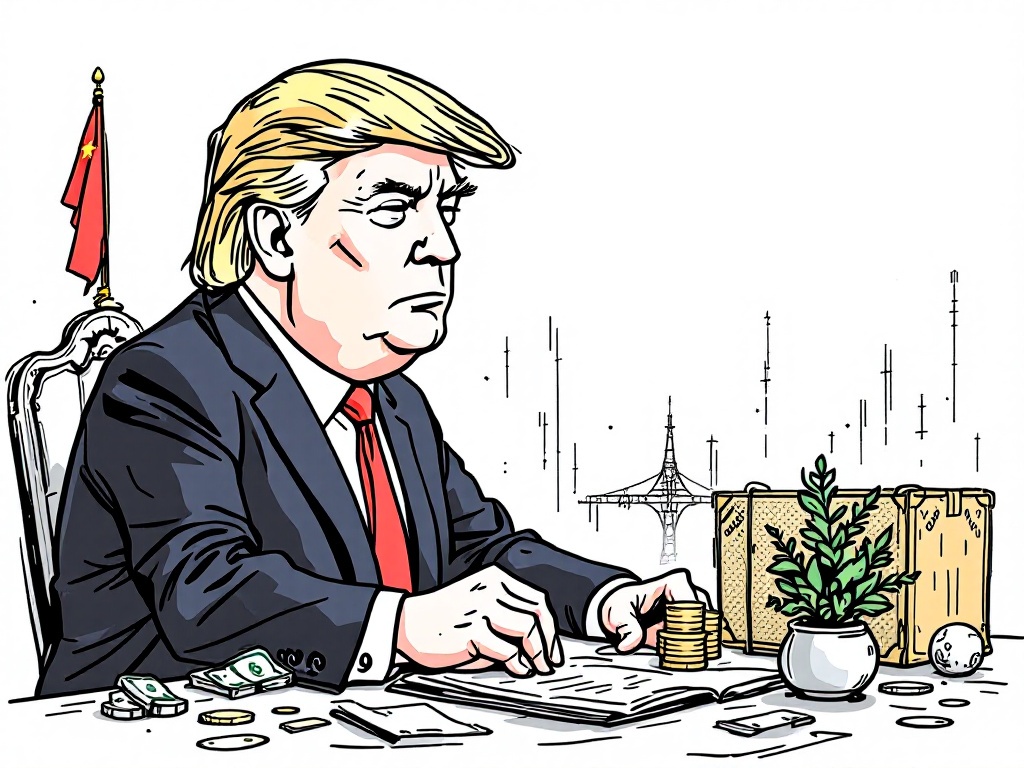Trump Considers Temporary Pause on China Tariffs Amid Broader Trade Talks

Washington, Friday, 18 April 2025.
President Donald Trump suggests pausing further tariff increases on Chinese goods, potentially easing trade tensions, while deliberations on TikTok’s U.S. operations are deferred pending trade progress.
Background and Context of Trump’s Tariff Strategy
Since his presidential campaign, former President Donald Trump has maintained that tariffs are a critical tool in his trade strategy, often referring to them as an effective means to balance international trade discrepancies. Despite his emphasis on tariffs, recent developments indicate a potential shift, as Trump has suggested pausing further tariff increases on Chinese goods. This consideration aligns with his broader strategy of leveraging tariffs within international negotiations, particularly with China—one of the United States’ major trading partners [1][2].
Current Developments in Trade Discussions
Trump’s tentative pause on increased tariffs appears to be a strategic move amid ongoing discussions aimed at resolving trade tensions with China, where tariff hikes have previously strained relations. The pause proposal may encourage more constructive dialogues, reflecting a possible de-escalation in rhetoric surrounding the trade war. Furthermore, China has expressed receptiveness to the pause, indicating that it might pave the way for more favorable negotiations without resorting to retaliatory measures [1].
Impact on TikTok Deal and Broader Trade Talks
The U.S. decision regarding TikTok’s operations remains on hold, contingent upon advancements in broader trade talks. Trump’s administration underlines that the spin-off or sale of TikTok’s U.S. operations should correspond with positive trade outcomes, emphasizing the interconnected nature of trade discussions and national digital economy policies. This delaying tactic may provide additional leverage in negotiations, though it prolongs uncertainty for TikTok [1][3].
Economic and Political Ramifications of Tariff Adjustments
The suggestion to ease tariff pressures comes amidst critical assessments of tariff impacts on both economies. The Chinese tariffs, set at a significant 145%, have major implications for U.S. businesses and consumers, with industry figures advocating for more stable trade conditions. Notably, the broader implications of these tariffs extend into political considerations, affecting state economies reliant on stable trade relations with China, as evidenced by critiques from state officials like California Governor Gavin Newsom [1][4][5].
Conclusion and Future Considerations
As the decision unfolds, the potential pause by President Trump signals an adaptable approach to trade policy, which may bring temporary relief to market uncertainties. However, the outcomes of these strategic maneuvers remain to be seen, contingent upon the success of negotiations. The coming weeks will determine whether this pause contributes to substantive progress in resolving trade tensions or whether it’s merely a transient reprieve in a broader economic contest [1][6].
Sources
- www.newsweek.com
- www.tradecomplianceresourcehub.com
- uk.finance.yahoo.com
- calmatters.org
- apnews.com
- finance.yahoo.com